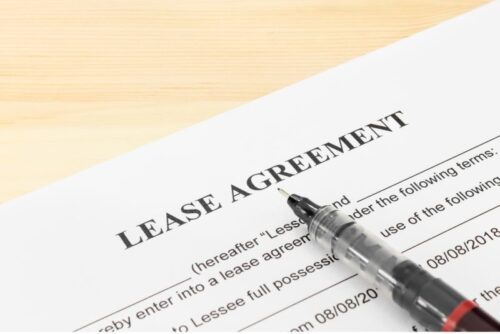CONCEPT OF LEASE AND RIGHTS AND LIABILITIES OF LESSOR AND LESSEE
Leasing is a common arrangement in the real estate industry, where a property owner (lessor) rents out their property to a tenant (lessee) for a specified period of time in exchange for rent payments. A lease agreement outlines the terms and conditions of the lease, including the rental amount, the duration of the lease, and the rights and liabilities of the lessor and lessee.
Concept of Lease: A lease is a legally binding agreement between a lessor and lessee. In a lease agreement, the lessor agrees to grant the lessee the right to use their property for a specified period of time, in exchange for rent payments. A lease can be for a residential or commercial property, and the terms and conditions of the lease can vary depending on the type of property and the agreement between the lessor and lessee.
Rights and Liabilities of the Lessor: The lessor has several rights and liabilities under a lease agreement:
- Right to collect rent: The lessor has the right to collect rent from the lessee according to the terms of the lease agreement. The lease agreement specifies the rental amount, the payment schedule, and any late payment fees.
- Right to enter the property: The lessor has the right to enter the property for necessary maintenance and repairs, as well as for showing the property to potential tenants. However, the lessor must provide the lessee with notice before entering the property, unless there is an emergency.
- Liability for repairs: The lessor is responsible for maintaining the property in a habitable condition, including making necessary repairs. The lessor must ensure that the property is safe and free from hazards that could harm the lessee.
- Liability for property taxes: The lessor is responsible for paying property taxes on the leased property. However, the lease agreement may specify that the lessee is responsible for paying a portion of the property taxes.
- Liability for compliance with laws: The lessor is responsible for complying with all applicable laws and regulations related to the property, including building codes, zoning laws, and environmental regulations.
Rights and Liabilities of the Lessee: The lessee also has several rights and liabilities under a lease agreement:
- Right to use the property: The lessee has the right to use the property for the specified purposes outlined in the lease agreement. The lessee must use the property for its intended purpose and must not use the property for illegal activities.
- Liability for rent payments: The lessee is responsible for paying rent on time according to the terms of the lease agreement. The lease agreement specifies the rental amount, the payment schedule, and any late payment fees.
- Liability for damages: The lessee is liable for any damages caused to the property during the lease term, beyond normal wear and tear. The lessee must take care of the property and must not damage the property through negligence or intentional actions.
- Liability for compliance with laws: The lessee is responsible for complying with all applicable laws and regulations related to the use of the property, including building codes, zoning laws, and environmental regulations.
- Right to quiet enjoyment: The lessee has the right to peaceful and quiet enjoyment of the property without interference from the lessor. The lessor must not interfere with the lessee’s use of the property or disrupt the lessee’s peace and quiet.
Conclusion: In summary, a lease is a contractual agreement between a lessor and lessee for the use of a property. Both the lessor and lessee have rights and liabilities under a lease agreement, and these rights and liabilities can vary depending on the terms of the agreement and the applicable laws. It is important for both parties to carefully review and understand the terms and conditions of the lease agreement before entering into the agreement.


